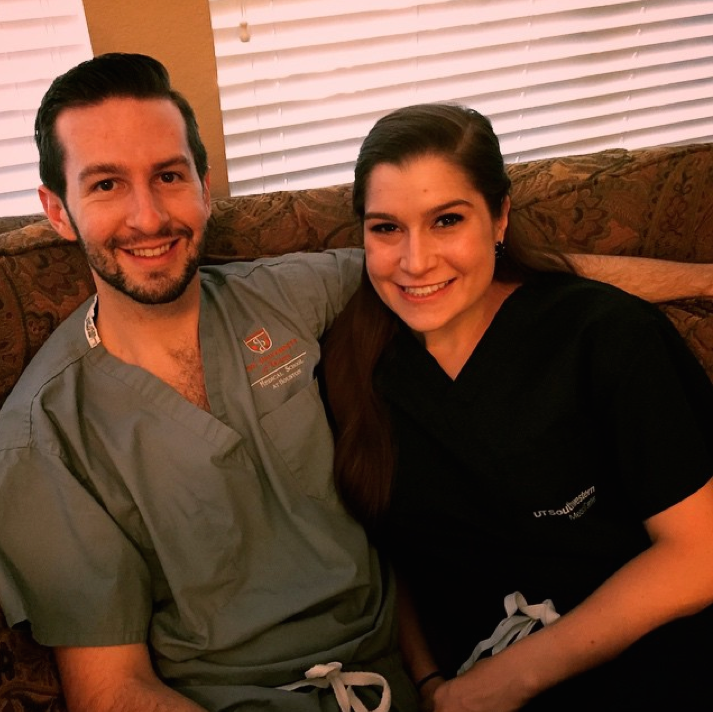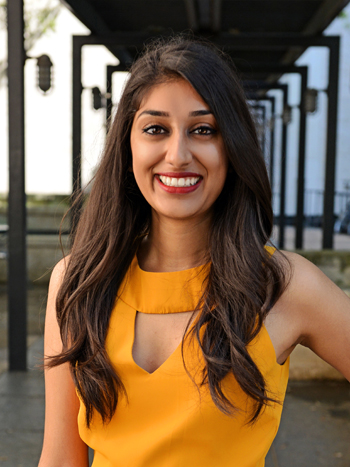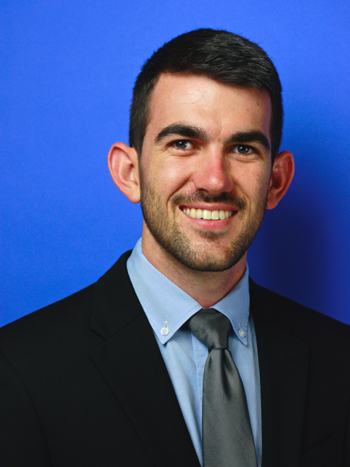Alumni of UT Austin Public Health leave their time on the Forty Acres and go out to do amazing things that change the world. Meet a few fantastic examples of former students who are making the most of their public health degree.
“I am so proud of the many accomplishments of our B.S. in Public Health students," says Leanne Field, Director of the Public Health Program. “The degree program is six years old, and our graduates have gone on to make amazing impacts across the globe! I am grateful to our dedicated faculty who work with students every day to equip them with the foundational knowledge and real-world skills and competencies for the future.”
Blake and Courtney Baker, Excellence in Public Health Awardees
 Steven Blake Baker and Courtney Baker née Kauffman have a lot in common. Both were College of Natural Sciences honors students who graduated in 2012 with either a major or senior thesis in public health. Both headed to medical school after UT. They married in 2015.
Steven Blake Baker and Courtney Baker née Kauffman have a lot in common. Both were College of Natural Sciences honors students who graduated in 2012 with either a major or senior thesis in public health. Both headed to medical school after UT. They married in 2015.
And now BOTH have received a prestigious award from the Surgeon General.
“We are the first husband and wife to each have been honored with the award of Excellence in Public Health,” says Steven Blake Baker, currently an MD/MPH candidate. “Discovering public health at UT totally changed my career trajectory—for the better.”
The United States Public Health Service (USPHS) Physician Professional Advisory Committee has given out the Excellence in Public Health Award since 2012 to medical students with a commitment to public health. Founded in 1798, USPHS works to promote health and prevent disease; today, it is represented by over 6,700 commissioned health professionals led by the Surgeon General.
Steven Blake Baker received his award in 2014 for bringing public health practices to real-time clinical decisions. As a second-year medical student, he used the Houston Fire Department’s Database to research whether out-of-hospital heart attacks are more survivable if blood flow continued to the brain with therapeutic hypothermia. Courtney Baker, also an M.D./M.P.H. student, received the award in 2016 for numerous activities, from encouraging families to adopt healthy habits as an intern for the “Keep Fit!” program to coordinating free well-woman clinics at the Union Gospel Mission. She also crafted resolutions for students in the Texas Medical Association on sterile syringe exchange programs, e-cigarette hazards, and access to drugs that reduce opioid overdose.
“I hope to utilize the skills I have acquired through my M.P.H. at the level of health care policy and advocacy, specifically in the realm of women’s health,” says Courtney Baker.
Bianca Patel, Fulbright Scholar
 Bianca Patel was recently awarded a Fulbright Scholarship in 2015 to continue what she started as a student in the public health program before she graduated that year.
Bianca Patel was recently awarded a Fulbright Scholarship in 2015 to continue what she started as a student in the public health program before she graduated that year.
“I've always been very passionate about service, and I knew that I wanted to graduate with a public service degree,” says Patel. “The public health degree was perfect — not only in that it fulfilled this, but also in that it bridged my passion for the sciences and humanities.”
Patel applied the skills she learned in the program—which include conducting epidemiological assessments, using statistical software and designing public health interventions—to tackle big issues, as a Fulbright Scholar in Malaysia.
“I'm interested in the relationship between food sustainability, sovereignty, and security and human rights (specifically, indigenous),” says Patel. “My public health degree and public policy experience allowed me to join the movement to end hunger. ... I'm so excited to live, breathe, and serve in this part of the world. I feel like I can actually help solve global issues.”
Brian Lackey, Biostatistician
 Brian Lackey graduated in 2013, after having focused on the epidemiology of infectious diseases. Lackey worked as an epidemiologist in the Bureau of Tuberculosis Control at the New York City Department of Health and Mental Hygiene as part of a CDC/CSTE Applied Epidemiology Fellowship. He also served as part of the Ebola response team in New York City.
Brian Lackey graduated in 2013, after having focused on the epidemiology of infectious diseases. Lackey worked as an epidemiologist in the Bureau of Tuberculosis Control at the New York City Department of Health and Mental Hygiene as part of a CDC/CSTE Applied Epidemiology Fellowship. He also served as part of the Ebola response team in New York City.
“I came into college with only a vague idea of what I wanted to do after graduation,” says Lackey. “Public health seemed to have a unique combination of rigorous quantitative methods and a focus on improving health that I hadn’t found in other majors.”
Working with Dr. Richard Taylor, a former CDC epidemiologist who teaches in the program, Lackey first studied the epidemiology of tuberculosis (TB) during his time at UT Austin. He went to the Universidad Peruana Cayetano Heredía in Lima, Peru and practiced multivariable modeling and analysis of patient data.
“I used the skills and knowledge I developed through the public health degree program every day in working to control TB in New York City,” says Lackey. “Jobs like this require many distinct skills—everything from biostatistics and data analysis to educating the public and writing reports for scientific audiences.”







